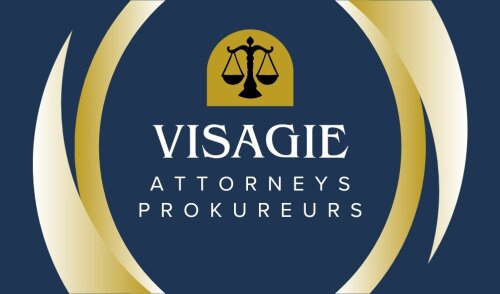Best General Litigation Lawyers in Rustenburg
Share your needs with us, get contacted by law firms.
Free. Takes 2 min.
List of the best lawyers in Rustenburg, South Africa
South Africa General Litigation Legal Articles
Browse our 2 legal articles about General Litigation in South Africa written by expert lawyers.
- South Africa Estate Planning and Inheritance for Foreigners
- South Africa practices "Freedom of Testation," allowing you to distribute your assets to anyone you choose, regardless of the "forced heirship" laws in your home country. A separate South African will is the most efficient way to manage local immovable property and prevents administrative delays at the Master of the... Read more →
- Suing for Medical Malpractice in South Africa - Legal Guide
- Medical malpractice claims in South Africa fall under the law of delict, requiring proof of negligence, causation, and actual damages. The standard prescription period for filing a claim is generally three years from the date the patient became aware of the negligence. Expert medical testimony is mandatory to establish whether... Read more →
About Litigation Law in Rustenburg, South Africa
Litigation law in Rustenburg, South Africa, primarily involves solving disputes through the judicial process. This area of law encompasses various issues including civil, commercial, and sometimes criminal disputes. Rustenburg, like the rest of South Africa, operates under a legal system that combines Roman-Dutch law and English common law traditions. Litigation processes can be intricate due to procedural requirements and the need for expert advocacy. The North West High Court located in Mahikeng often deals with more significant matters, while smaller disputes may be resolved in the Magistrates' Courts within Rustenburg.
Why You May Need a Lawyer
Individuals and businesses may require a lawyer for several reasons, including:
- Contract disputes: Disagreements over terms or breaches of contract.
- Property disputes: Issues related to ownership, tenancy, or boundaries.
- Personal injury claims: Seeking compensation for injuries due to accidents or negligence.
- Family law matters: Divorce proceedings, custody battles, or inheritance disputes.
- Debt recovery: Challenging situations involving the collection of unpaid debts.
- Commercial disputes: Conflicts arising in business operations or partnerships.
Local Laws Overview
In Rustenburg, key aspects of local laws that impact litigation include:
- The Constitution of South Africa: It is the supreme law and greatly influences litigation, ensuring fundamental rights are protected.
- Civil Procedure: The rules and processes for conducting civil litigation in Magistrates' and High Courts.
- Consumer Protection Act: Governs disputes between consumers and suppliers of goods/services.
- Law of Contract and Delict: Integral for understanding disputes arising from agreements and wrongful acts.
- Land and Property Law: Significant given Rustenburg's economic activities surrounding mining and agriculture.
- Labour Law: Governs employment disputes, crucial in a city known for mining operations.
Frequently Asked Questions
What types of cases are heard in the Magistrates' Court versus the High Court?
Magistrates' Courts handle less severe civil and criminal cases, while High Courts deal with more significant, complex matters, often involving higher monetary values or constitutional questions.
How long does the litigation process take in Rustenburg?
The duration varies based on case complexity, court schedules, and the cooperation of involved parties. Straightforward cases might conclude within months, whereas complex ones could take years.
Can I settle a dispute without going to court?
Yes, many disputes are resolved through mediation or negotiation outside of court, often leading to quicker, less costly outcomes.
What does a litigation lawyer do?
A litigation lawyer represents clients in legal proceedings, offering advice, preparing necessary documentation, and advocating in court.
How much does it typically cost to hire a litigation lawyer?
Costs vary significantly based on the lawyer's experience, case complexity, and law firm practices. It's advisable to discuss fees up front.
What should I bring to my first meeting with a litigation lawyer?
Bring all relevant documents, such as contracts, correspondence, and any prior legal notices or court documents.
Is it mandatory to have a lawyer represent me in court?
While not mandatory, having a lawyer is highly recommended due to the complexity of legal processes and procedural rules.
What is the role of the South African Human Rights Commission in litigation?
This body may get involved in cases related to human rights violations, providing assistance or representation where necessary.
Does Rustenburg have legal aid services?
Yes, legal aid services are available for those who qualify financially, offering assistance in both civil and criminal cases.
How can I check the status of my case in Rustenburg?
Contact your lawyer or the court's administrative office where your case is filed for updates on proceedings.
Additional Resources
Consider the following resources for additional help:
- The North West High Court in Mahikeng for significant legal matters.
- Legal Aid South Africa for affordable legal assistance.
- The Law Society of the Northern Provinces for guidance on local legal practices.
- Rustenburg's Magistrates' Court for smaller civil and criminal matters.
- The South African Legal Practice Council for regulatory information about lawyers.
Next Steps
If you believe you need legal assistance in litigation, consider the following steps:
- Identify the nature of your dispute and gather relevant documentation.
- Research and list potential litigation lawyers in Rustenburg specializing in your area of need.
- Schedule consultations to discuss your case, understand the process, and inquire about fees.
- Choose a lawyer whose expertise and approach align with your needs.
- Seek alternative dispute resolution methods if possible, such as mediation or arbitration, before proceeding to court.
Lawzana helps you find the best lawyers and law firms in Rustenburg through a curated and pre-screened list of qualified legal professionals. Our platform offers rankings and detailed profiles of attorneys and law firms, allowing you to compare based on practice areas, including General Litigation, experience, and client feedback.
Each profile includes a description of the firm's areas of practice, client reviews, team members and partners, year of establishment, spoken languages, office locations, contact information, social media presence, and any published articles or resources. Most firms on our platform speak English and are experienced in both local and international legal matters.
Get a quote from top-rated law firms in Rustenburg, South Africa — quickly, securely, and without unnecessary hassle.
Disclaimer:
The information provided on this page is for general informational purposes only and does not constitute legal advice. While we strive to ensure the accuracy and relevance of the content, legal information may change over time, and interpretations of the law can vary. You should always consult with a qualified legal professional for advice specific to your situation.
We disclaim all liability for actions taken or not taken based on the content of this page. If you believe any information is incorrect or outdated, please contact us, and we will review and update it where appropriate.
















